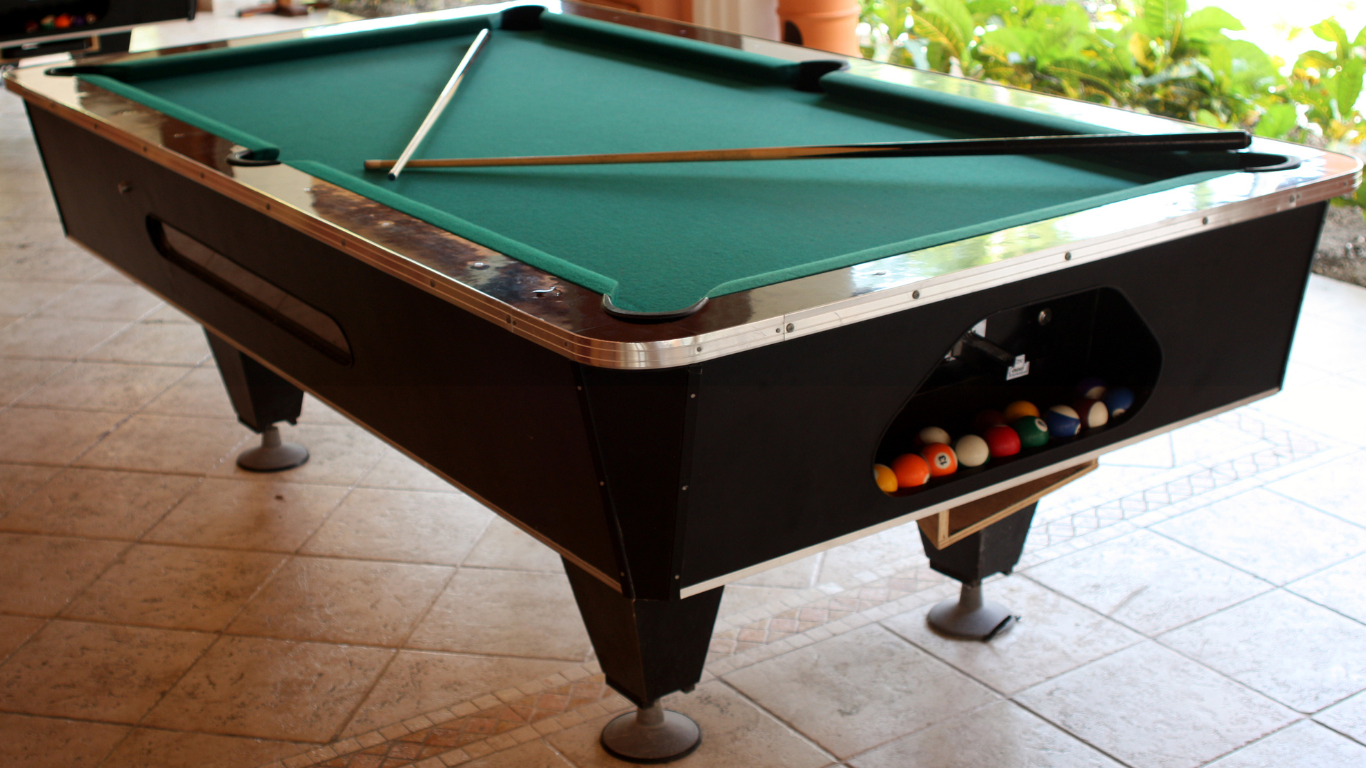Buying a pool table is a big financial and space commitment for your home or organization. Whether you are a dedicated player or just want to add a recreational focal point to your room, a few important factors can help you make the right decision. Here is a detailed guide that will help you navigate the process.
Also, Are you looking for outdoor gym equipment manufacturers in India?
1. Size and Space Requirements
One of the first and most important factors when choosing a pool table is its size and the available space. Standard pool table come in a variety of sizes, ranging from 7 to 9 feet in length. The size you choose should be determined by the dimensions of the area in which the table will be set up, as well as the amount of clearance needed for a comfortable game.
Make sure there is enough space not only for the table but also for players to move around comfortably, especially when hitting shots with a long cue. A general rule is to leave at least 5 feet of space around the table.__
2. Quality of Materials
The quality of the materials used to build a pool table has a direct impact on its longevity and gameplay experience. Look for a table with a sturdy structure, often made of hardwoods such as oak or maple, as these materials provide both strength and aesthetics.
The playing surface of the table is often made of slate, resulting in a smooth and flat playing surface. Slate tables are chosen over options such as plywood or MDF (medium-density fiberboard) because of its greater durability and ability to maintain a stable playing surface over time.
3. Cloth and Cushions
The fabric covering the slate surface is another important component of a pool table . High-quality materials, such as wool or worsted cloth, promote smooth ball roll and improve play accuracy. Worsted cotton, in particular, is known for its durability and responsiveness, making it a favorite choice among professional players.
Inspect the cushions (or rails) around the playing surface to ensure they are made of high-quality rubber and provide consistent bounce and responsiveness. Well-maintained cushions are crucial for accurate bank shots and overall gameplay enjoyment
4. Leveling and Stability
Pool tables must be leveled correctly to enable fair play and keep the balls from sliding around unexpectedly. Look for a table with adjustable leg levelers, especially if your floor is uneven. Leg levelers allow you to modify the height of each leg individually, keeping the table sturdy and the playing surface level.
Stability is another important feature. A well-constructed pool table should feel sturdy and secure, even during intense play. Avoid tables that wobble or feel fragile, as they can reduce your enjoyment and lead to premature wear.
5. Accessories and Extras
Consider the accessories that come with the pool table. Most reputable manufacturers include important accessories such as cues, cue balls, a triangle rack, chalk and, in some cases, a cover to protect the table when not in use. Including these items in your order can help you save money and have the table ready to play as soon as it’s set up.
6.Budget Considerations
Set a budget when buying a pool table so you can narrow down your choices. Prices can vary greatly depending on the size, quality of materials, and reputation of the brand. While it is tempting to choose the cheapest option, investing a little extra in a high-quality table can be beneficial in terms of longevity and general enjoyment over time.
Consider any potential additional expenses, such as shipping fees, expert installation, or customization possibilities, when setting your budget.
7. Research and Comparison
Before making a final selection, do your homework and evaluate different pool table models, brands, and user reviews. Visiting a showroom or local billiards store allows you to see and try out tables in person, giving you a better idea of their structure and playability.
Use internet resources, forums and community reviews to learn from other pool owners and buyers. Their experiences can give you useful information to help you make an educated decision.
Conclusion
Buying a pool table is an important decision that should be taken carefully, taking into account elements such as size, quality of materials, quality of fabric and cushions, flatness and stability, included accessories, budget, and extensive research. By carefully considering these factors, you can choose a pool table that not only matches your space and budget, but also improves your playing experience for years to come.
